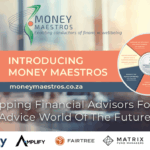According to a report by the International Energy Agency (IEA), renewable energy is expected to account for 60% of new-build-generation capacity in Sub-Saharan Africa (excluding South Africa) by 2040. With growing investment in renewables, it is critical to understand how women-owned companies can better position themselves to benefit from the opportunity.
To date, South Africa’s Renewable Independent Power Producer Procurement Programme (REIPPPP) has set a low threshold for female ownership. Independent power producers are currently only required to have a 5% female ownership level and a meagre 3% threshold for procurement from women-owned companies. Even with these low thresholds companies are struggling to meet them and women remain under-represented in the sector even from an employment perspective, where women currently account for 31% of the workforce in Eskom and make up 21% of the coal sector.

To date a total of 123 projects have been awarded under the REIPPPP, attracting over $17.3-billion in investments and adding approximately 6 200MW of installed capacity (or 5% of South Africa’s energy supply) to the national grid. It is considered as one of the leading renewable energy programmes globally.
Says Linda: “The transition to clean energy is here but it remains crucial that women position themselves to participate in this transition and this will require funding, upskilling and an increase in ownership and procurement thresholds.
“But even if the thresholds are raised, we still need to ensure women participate and this requires an understanding of the energy value chain and this is one of the areas we focussed on at the DLO African Women in Leadership that was held in August in Sandton. One of the initiatives we have as an organisation is to share as much knowledge as we can with women who want to participate in the sector. Workshops went into the granular details of the areas where women-owned companies can participate.”
One of the key challenges identified as a barrier to entry for women in the energy sector is the lack of information about the sector and opportunities for participation.










